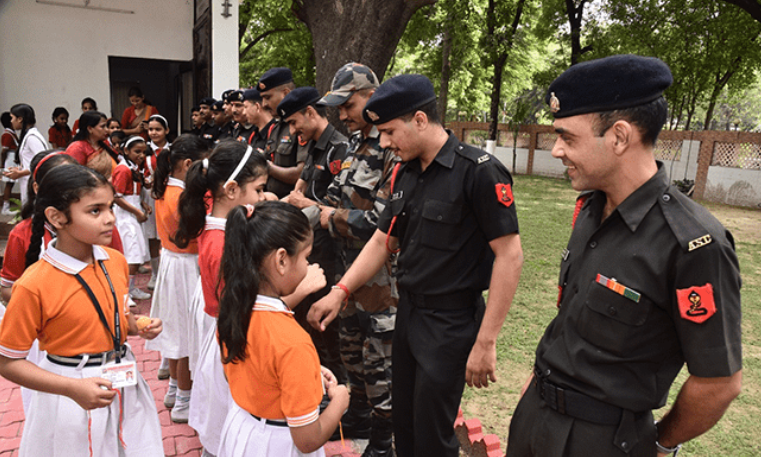
By Rokibuz Zaman / Scroll
It was drizzling when 60-year-old Sader Ali rushed in from the fields on the afternoon of October 9. He had heard someone from Guwahati was visiting their home to listen to their story.
Ali’s 12-member joint family lives in Ramraikuti I village in Lower Assam’s Dhubri district. It is on the international border between India and Bangladesh and just 100 metres from the Assam-West Bengal interstate border.
Ali and his older brother, 66-year-old Mujam Sheikh, are tenant farmers. When it is not sowing or harvest season, they try to find work as daily wagers. They belong to the “Desi” Muslim community – a group recently designated by the government as “indigenous” to Assam.
But on July 30, two people in civilian clothes turned up at their home – they said they were from the local Agomoni police station and that four members of Ali’s family were under scrutiny as suspected foreigners. The four notices were handed out to Ali and his wife, 51-year-old Molina Bibi, and Sheikh and his wife, 55-year-old Saleha Bibi.
They had to go to the Foreigners’ Tribunal in Dhubri town to prove their citizenship. Foreigners’ Tribunals are quasi-judicial bodies tasked with deciding on matters of disputed nationality.
“It was a shock like an earthquake,” said a weeping Ali. “It is a matter of shame. We are Indians and there is no question about it. My father has a school certificate from 1947, he worked in the 1950s, his name figured in the 1951 NRC and he also voted in 1958.”
The NRC or National Register of Citizens is a list of Indian citizens living in Assam. First compiled in 1951, it was updated in 2019.
“We have been living here since we were born,” said Ali. “My father worked in a government office and used to get Rs 7-Rs 10 as salary per month. Now, his sons are served with notices to prove their nationality. We don’t have money. The government does not help us in any way. Instead, it troubles us by asking to prove our nationality.”
Ali’s family is not the only one in this predicament. According to a border police official at the Agomoni police station, at least 150 families living within its jurisdiction have been served notices this year.
Most belong to the Desi Muslim community. Considered native to Lower Assam, Desi Muslims trace their roots to the kingdom of Kamrup and local tribal communities. They are believed to have converted to Islam around the 13th century.
Old cases, long shadows
Assam’s border police is a wing of the state’s police force dedicated to tracking down so-called foreigners in a state that shares a boundary with Bangladesh and has seen waves of migration.
Police stations across Assam have border police units. Besides, there are watch posts installed at border villages.
According to the border police officer at Agomoni, there are now two types of suspected foreigner cases. First, there are cases referred to them by the Election Commission, which has marked certain people “D” – or doubtful – voters. These are people whose citizenship is dubious, according to the commission.
Second, there are cases filed by the police based on village surveys. The police maintain official registers of births, deaths, marriages and village population. People whose names are missing from the records may be investigated as foreigners.
The border police refer these cases to the foreigners’ tribunals. If the tribunals deem the individuals under investigation to be foreigners, they may be held in Assam’s detention centres or deported to Bangladesh, the presumed country of origin. Since Bangladesh rarely accepts them as citizens, many of those declared foreigners in Assam have spent years in detention centres.
A senior officer from the Dhubri border police said they were exempted from the Right to Information Act and not bound to share any data or information on suspected foreigner cases.
“There are about 18,000 pending suspected foreigners’ cases in Dhubri as of today,” the officer said. According to him, no new cases have been initiated by them since 2018.
The current tranche of notices go back to cases from 1997-98, he said. About 450 such notices have been distributed across Dhubri district, he added. For years, these cases had mouldered in the police files. The official, who did not want to be identified, surmised that the sudden surge in notices might be related to the fact that the foreigners’ tribunal in Dhubri had recently added four new members, as the adjudicating officers are called. The sudden increase in manpower, he claimed, “boosts the functioning of the foreigners’ tribunal”.
This story was originally published in scroll.in . Read the full story here






